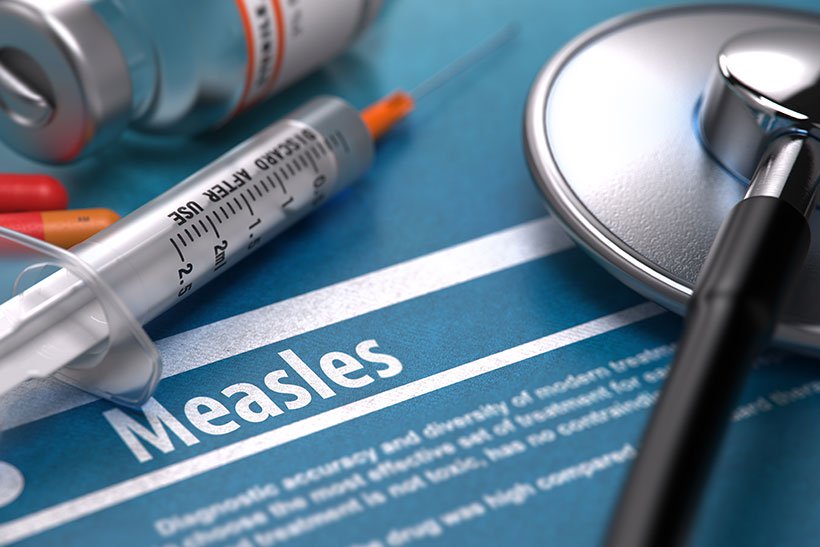What is Measles?
Measles is a highly contagious viral infection caused by the measles virus (rubeola). It primarily affects children but can occur in anyone who is unvaccinated. Despite being preventable, measles continues to pose a global health threat due to declining vaccination rates in some areas.
Origin and History of Measles
- Measles has been documented for over 1,000 years.
- The virus was first isolated in 1954 by Dr. John F. Enders and his colleagues.
- A vaccine was developed in 1963, significantly reducing cases worldwide.
- Before widespread vaccination, measles caused millions of deaths annually.
How Measles Spread
- Measles spread through respiratory droplets when an infected person coughs or sneezes.
- The virus can live in the air and on surfaces for up to 2 hours.
- It’s one of the most contagious diseases, with 90% transmission among close contacts if vaccinated.
Signs and Symptoms
Measles symptoms typically appear 10-14 days after exposure. They may include:
- High fever (often above 104F or 40C)
- Dry cough
- Runny nose
- Sore throat
- Red, watery eyes (conjunctivitis)
- Tiny white spots inside the mouth (Koplik spots)
- Rash that starts on the face and spreads downward
Prevention: The Power of Vaccination
- The best way to prevent measles is through vaccination.
- MMR vaccine (measles, mumps, and rubella) is 95-98% effective after two doses.
- Recommended vaccination schedule: First dose: 12-15 months of age, Second dose: 4-6 years of age
Additional Prevention Tips:
- Avoid contact with infected individuals
- Wash hands regularly
- Stay home if sick to prevent spread
- Ensure international travelers are vaccinated, especially when visiting high-risk countries
Diagnosis and Treatment
There is no specific antiviral treatment for measles, but supportive care can help manage symptoms:
Treatment Includes:
- Rest and hydration
- Fever reducers (acetaminophen or ibuprofen)
- Vitamin A supplements (shown to reduce severity in children)
- Monitoring for complications like pneumonia, encephalitis, or ear infections
- Important: Seek medical attention if symptoms worsen or complications arise.
Why Health Insurance Matters
Measles can lead to serious health complications requiring hospitalization. Having comprehensive health insurance ensures access to:
- Preventative care (like vaccines)
- Pediatric and urgent care services
- Specialist referrals for complications
- Reduced out-of-pocket costs during treatment
Stay Protected. Stay Informed.
Vaccination remains the best defense against measles. Protect yourself and your loved ones by staying up to date on immunizations and ensuring your health insurance covers preventative care.
Looking for healthcare benefits to assist with preventative care and illnesses? Contact our Member Services Team today at (214) 389-9072.




